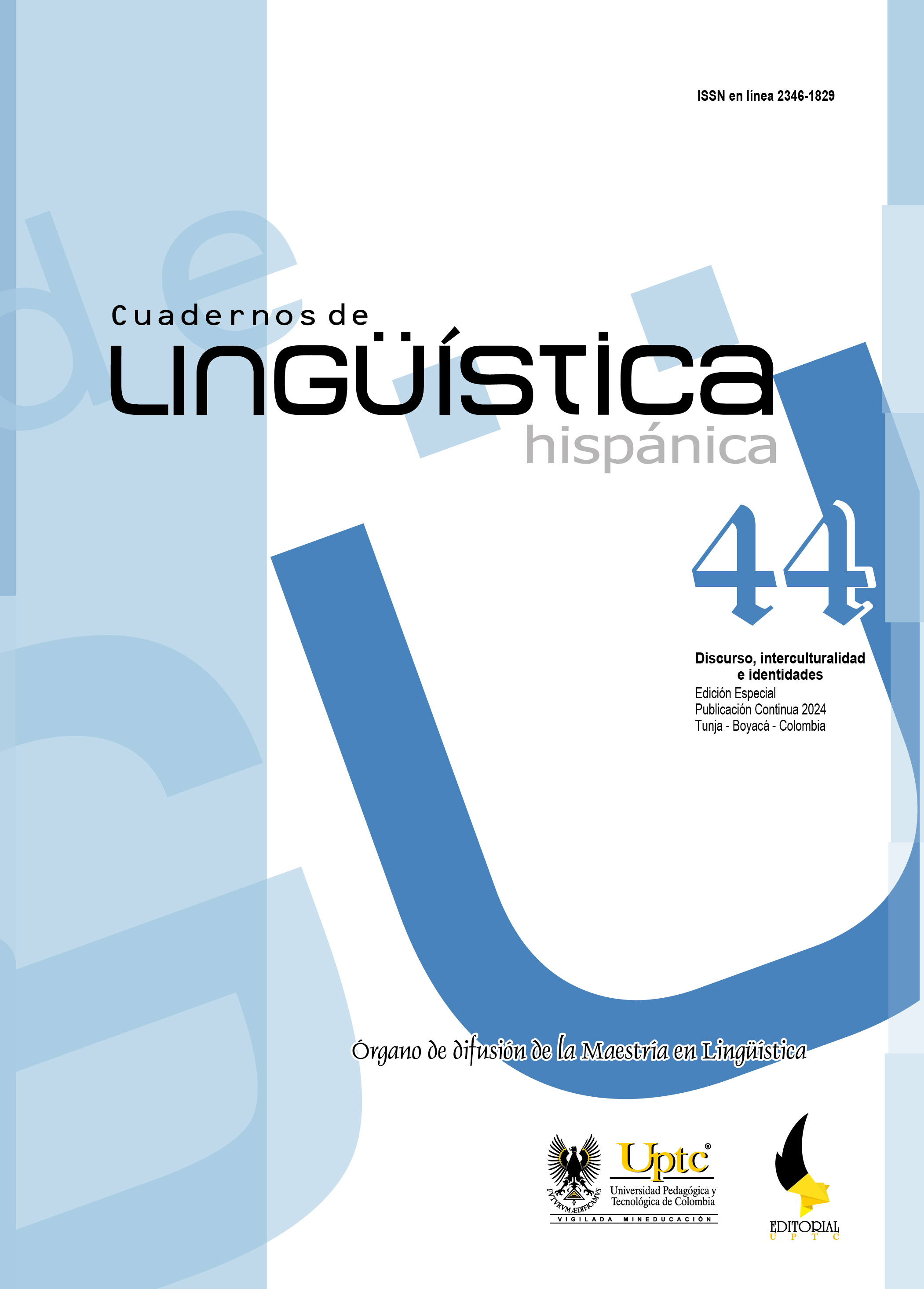Political Identity in the Discourse of Witnesses of the Bogotazo in Boyacá

Abstract
This article examines the results of the project “Political Identity in the Narratives of April 9th in Boyacá.” Its purpose is to analyze, from the perspective of discourse analysis, the influence of a political identity (conservative or liberal) in the formation of the narrative that emerges from the experiences and childhood memories of a witness of the events that occurred on April 9, 1948, or Bogotazo, in three places in Boyacá: Cómbita, Tunja and Boavita. The conclusions may be summarized as follows: first, the interdisciplinary study from a linguistic perspective; second, the contribution to the concept of political identity based on discourse analysis; and third, the fieldwork with oral sources and the contribution to the historical memory of Colombia.
Keywords
political identity, oral sources, liberalism, conservatism, Boyacá
References
- Arendt, H. (1997). ¿Qué es la política? Paidós.
- Arendt, H. (2009). La condición humana. Paidós.
- Benjamin, W. (2008). Tesis sobre la historia y otros fragmentos (Bolívar Echeverría,trad.). UACM.
- Bohórquez-Aunta, C. A. & González- González, E. L. (2018). Identidad política en los relatos del 9 de abril en Boyacá [Tesis de Maestría]. Universidad Pedagógica y Tecnológica de Colombia.
- Corbetta, P. (2003). Metodología y técnicas de investigación social. Editorial Mc Graw Hill Interamericana.
- Foucault, M. (2005). El orden del discurso. Tusquets Editores.
- Habermas, J. (1971). Technology and Science as ‘Ideology’. In N. Stehr & R. Grundmann (Eds.) (2005), Knowledge. Critical Concepts (vol. 4, pp. 56-84). Routledge.
- Kirk, R. (1956). The Conservative Mind. From Burke to Eliot. Regnery Publishing.
- Llisterri, J. (1997). Etiquetado, transcripción y codificación de corpus orales. En Seminario de Industrias de la Lengua. Universidad Autónoma de Barcelona.
- Martínez, M. C. (1997). Análisis del discurso. Universidad del Valle.
- Nora, P. (2009). Les lieux de mémoire. Gallimard.
- Ocampo, J. (1990a). Qué es el conservatismo colombiano. Plaza & Janés.
- Ocampo, J. (1990b). Qué es el liberalismo colombiano. Plaza & Janés.
- Pujadas, J. J. (1992). El método biográfico: el uso de las historias de vida en ciencias sociales. Centro de Investigaciones Sociológicas.
- Ricoeur, P. (2006). Sí mismo como otro. Siglo XXI Editores.
- Sandoval, C. & Sarián, V. (2020). Una aproximación al concepto de identidad política. Universidad Diego Portales.
- Szczepanski, J. (1979). El método biográfico. Papers: revista de sociología, (10), 231-256.
- Van Dijk, T. (2005). Ideología y análisis del discurso. Utopía y Praxis Latinoamericana, 10(29), 9-36.
- Van Dijk, T. (2007). Análisis del discurso ideológico (R. Alvarado, trad.). Estudios de Comunicación y Política, (6), 15-43.
- Wodak, R. & Meyer, M. (Eds.). (2015). Methods of Critical Discourse Studies. Sage
